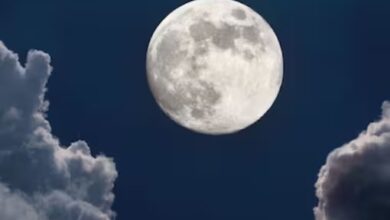Rediscover the bitter-sweet path of coffee by reading Brewing Memories
Each individual has a unique connection with coffee; some are purists who will discuss their beans, roasts, and brewing techniques. Others just need a caffeine boost, regardless of the source or method. Then there are the risk-takers and the experimentalists who prefer their drink with a twist; they’ll play with flavors like raspberry, mint, and bubblegum and be risqué with their beverage. What we’re attempting to imply is that although everyone needs this beverage, our methods of consumption may vary.
Did you know that coffee has its own GI tags, namely from Kodagu (Coorg), Bababudangiri, Chikkamagaluru, Araku Valley, and Wayanad? You may have heard of French champagne.
India is now the only nation in the world where all coffee is produced in shade, hand-picked, and sun-dried. Indian coffee beans are extensively exported around the world and are particularly prized as “premium” coffee in European markets. A total of 3,52,000 metric tonnes of coffee beans (Arabica and Robusta) are expected to have been produced in India in 2022–2023, with the southern areas dominating the landscape with a production of 326,415 metric tonnes.
In India, our southern neighbor has a close relationship with these black beans. Residents in this region take pride in their hot cup of filter kaapi, and for good reason—here is where coffee originated and flourished. In these mountainous areas, coffee has always been an integral part of life, and these four locations—Chikkamagaluru, Kodagu (Coorg), Wayanad, and Araku Valley—are where it all began.
Arabic Chikkamagaluru
The origin of the world’s most beloved beverage is recognized for its towering, lush green trees and massive coffee estates, which generate the majority of the country’s 96,180 metric tonnes of coffee. The two varieties most often found in these areas are Arabica and Robusta. To learn how coffee is manufactured, travel to Chikkamagaluru and take a tour of the coffee estates. Barbara Estate Beans from Korebi Coffee are another an option; they are sold on CRED Store.
Arabic in Kodagu (Coorg)
Coorg is a little region that is hidden away in one of the rich valleys known for producing Arabica and Robusta. Grab some of the Estate Monkeys single estate line’s 100% genuine Arabica coffee, and while you’re at it, don’t forget to take a tour of these thriving, thick estates!
Fresh, 100 percent pure, and quality Arabica beans are provided by Estate Monkeys from the North Coorg plantations of Baragalli Estate and Puttana Koppalu Estate. This coffee is described and enhanced by selectivity, traceability, transparency, and quality. Every step, from planting to brewing, is tracked and verified.
The estate level is where the quality inspection process begins. Coffee that is cultivated in the shade benefits migrating birds, local flora and wildlife, and biodiversity. By complementing the coffee plants with other fruit-bearing trees and spices, they maintain a significant amount of biodiversity, which actually enhances the flavor of the coffee. The hand-picked, juicy cherries are carefully hand-sorted. The fruit pulp is removed from them using machinery, and the mucilage is then removed by washing them in clean water. The washed beans are spread out in thin layers and continuously dried outside in the sun for a few days before being placed into hulling machines to remove the skin.
Robusta from Wayanad
Robusta coffee is cultivated both alone and in conjunction with pepper in Kerala’s Wayanad area. Wayanad, which also acts as the hub of the state’s coffee industry, is where the bulk of Kerala’s coffee is cultivated. The area has a lot to offer nature lovers and those seeking a peaceful, tranquil getaway.
Arabica – Araku Valley
Arabica in this instance has a light to medium intensity, a wonderful acidity, a grapefruit citrus note, and a mild sweetness resembling jaggery. In Visakhapatnam and the Koraput district of Odisha, it is cultivated.
Other less well-known but as intriguing varieties of coffee other from those with GI tags include Monsoon Malabar, a rare kind found in Kerala’s Malabar area. Dope Coffee Roasters offers this whole bean roasted variety in addition to Nilgiri Coffee Beans, another famed kind that is a mainstay of the southern Nilgiri Regions.
If you’re interested in learning more about the coffee industry, maybe it’s time for you and your family to go on a little journey in these densely populated mountainous areas, complete with freshly made cups of bitter coffee and some unforgettable experiences.







